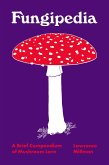The book masterfully weaves together decades of research across six continents, revealing the sophisticated lives of insects through three main themes: their complex social structures, ecological significance, and remarkable evolutionary adaptations that have ensured their survival for over 400 million years.
Through a blend of traditional field observations and cutting-edge genomic analyses, readers discover extraordinary insights into insect behavior and biology. The text illuminates how ant colonies make collective decisions, bees communicate through intricate dance languages, and termites construct climate-controlled structures. These examples showcase the remarkable intelligence and adaptability of insects while highlighting their crucial role in ecosystem maintenance, from pollination to decomposition.
The book distinguishes itself by bridging scientific research with practical applications, making complex entomological concepts accessible to both academic and general audiences. Each chapter builds upon the previous, moving from basic insect anatomy and behavior to broader ecological implications and human applications.
The integration of current environmental challenges with traditional entomology demonstrates why understanding insects is crucial for addressing modern issues like food security and biodiversity conservation, all while maintaining a clear, engaging narrative supported by detailed illustrations and data visualizations.
Dieser Download kann aus rechtlichen Gründen nur mit Rechnungsadresse in A, B, BG, CY, CZ, D, DK, EW, E, FIN, F, GR, H, IRL, I, LT, L, LR, M, NL, PL, P, R, S, SLO, SK ausgeliefert werden.









